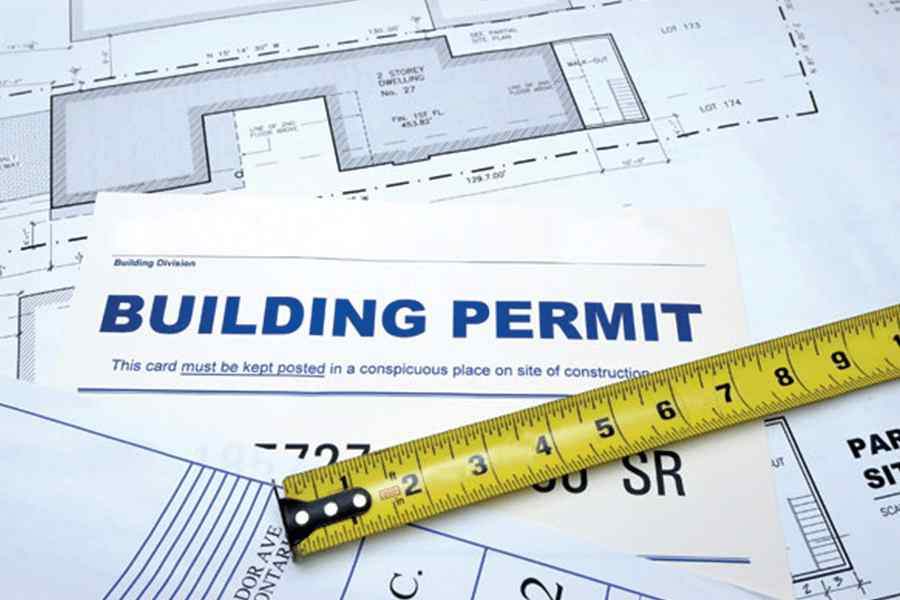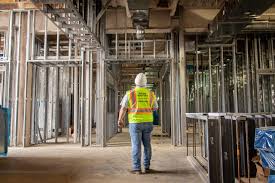Don’t Get Fined! What You Need to Know About Zoning and Building Codes Before Constructing Your Commercial and Industrial Building

Starting a commercial and industrial building project is a thrilling and potentially lucrative opportunity. Still, before you start digging and pouring the foundation, it’s crucial to remember that there are a host of legal and regulatory hurdles to clear first. Two of the most critical are zoning and building codes, which govern what you can build, where you can build it, and how it must be constructed. Understanding these regulations is key to ensuring that your project is not only legal but also safe, accessible, and cost-effective. In this article, we'll dive into what zoning and building codes are, why you must consider them before embarking on a commercial and industrial building project, and how you can navigate them to achieve a successful outcome.
What is Zoning?
Zoning is a regulatory process that is put in place by local governments to control and manage land use within a particular area. The process is used to define specific areas within a city or town where certain types of activities can occur, such as residential, commercial, or industrial ventures.
When it comes to commercial and industrial building projects, zoning is one of the first things you need to consider. This is because if the location is zoned for residential use, building a commercial structure can be difficult and result in a delay in the construction process and costly fines.
Moreover, zoning laws also specify how close buildings can be to one another and the amount of open space that must be provided. This is important for ensuring that the buildings in the area are not overcrowded and that there is enough space for people to move around freely.
To ensure that your project complies with zoning regulations, we recommend you work with a contractor or a professional service who is familiar with the local regulations. At Flynn Bros Projects, we can help you navigate the zoning laws and ensure that your plans meet all the necessary requirements. By doing so, you can avoid costly fines and ensure that your commercial and industrial building project is safe and functional for those who will use it.
Understanding Building Codes
Building codes are regulations that specify standards for the design, construction, alteration, and maintenance of buildings. These codes address a wide range of issues, including the materials that can be used in construction, the size and height of the building, and the number of parking spaces that must be provided. Building codes also cover requirements for fire safety, accessibility for people with disabilities, and energy efficiency.

It's essential to note that building codes vary from province to province and city to city. Therefore, checking the codes in your area before starting construction is important. As well, building codes are not static and can change periodically, so you should always be sure to stay up-to-date with them. In some cases, new regulations may apply retroactively to older structures, requiring upgrades or modifications. In other cases, local building authorities may allow the use of alternative materials or construction methods that meet or exceed code requirements.
By working with a company that is familiar with local codes, you can ensure that your building meets all the requirements for safety and functionality while also avoiding costly fines and delays.
Why are Zoning and Building Codes Crucial for Commercial and Industrial Building Projects?
Compliance with zoning and building codes is necessary to ensure the safety and functionality of the commercial and industrial buildings. Non-compliance with these set regulations can result in costly delays and fines. While constructing your commercial and industrial building, you should always stay informed and up to date on changes to zoning and building codes.

In addition to ensuring safety and functionality, compliance with zoning and building codes also helps maintain the reputation and value of the commercial and industrial building. Non-compliance can result in legal action, which can be detrimental to a business's reputation and finances. Moreover, adhering to these regulations can help the building become more energy-efficient and environmentally friendly, leading to cost savings in the long run. By staying up to date with zoning and building codes, businesses can also stay ahead of the competition by implementing the latest standards and technologies that can enhance the overall quality and functionality of the commercial and industrial building.
How to Navigate Zoning and Building Codes
Navigating zoning and building codes can be challenging, especially for those unfamiliar with local laws and regulations. Working with a contractor who is familiar with local regulations can be helpful. Hiring a professional inspector to check for zoning and building code compliance can also help ensure that your commercial and industrial building meets all necessary requirements.
Another vital thing to consider is to stay informed and up to date on any changes to zoning and building codes that may affect your commercial and industrial building project. This can be achieved by regularly checking with local government agencies responsible for enforcing these regulations. It's also helpful to attend public meetings or forums where zoning and building code issues are discussed, as this can provide valuable insight into any changes that may be forthcoming. Careful planning, due diligence, and attention to detail are essential for successfully navigating zoning and building codes when constructing a commercial and industrial building.
Zoning and building codes are critical considerations when constructing a commercial or industrial building. Compliance with these regulations ensures the safety and functionality of the building while avoiding costly delays and fines. Flynn Bros Projects can help you stay informed and up to date on changes to zoning and building codes, for your commercial and industrial building needs. With the proper guidance and compliance, your commercial and industrial building project can be a success! Contact us today to get started on building your vision.
Stay Connected with Us!
Follow us on our social media channels to get the latest updates, exclusive offers, and behind-the-scenes content. Join our community and be part of the conversation!
